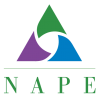The mission of the NAPE Education Foundation Board of Directors is to build educators’ capacity to implement effective solutions for increasing student access, educational equity, and workforce diversity. The Board meets quarterly and includes a diverse group of education and business and industry professionals.
2025-2026 NAPE Education Foundation Board of Directors
- Victor Brown, PhD, MBA, President Elect, Vice President for Academic Affairs and Provost, Husson University
- Sherica R. Bryan, J.D., Vice President, Global Employment & Litigation, Snyk
- Judy D’Amico, Ex Officio Board Member Emerita
- Ruth Durkee, State Director of Career Technical Education, Vermont Agency of Education
- Norman L. Fortenberry, Sc.D., President, Former Executive Director, American Society for Engineering Education
- Judea Goins-Andrews, Advocate for Diversity and Equity in STEM Careers
- Veronica Gonzales, Founding Partner, STEM Playbook
- Michael Grubbs, PhD, Secretary, Director, Career, Technical, Adult Education, Loudoun County Public Schools
- Michael C. Hill-Shaner, State Director, Delaware Department of Education
- Lisa Marie Horvatinovich, Mechanical Engineer, Northrop Grumman
- Nicholas Northington, Global Director of Diversity, Equity & Inclusion, International Research Exchanges Board
- Annie Storey, Executive Director, Illinois Section American Water Works Association
- Sara Baird, President NAPE Executive Committee, Assistant Director, Wisconsin Dept. of Public Instruction, CTE
